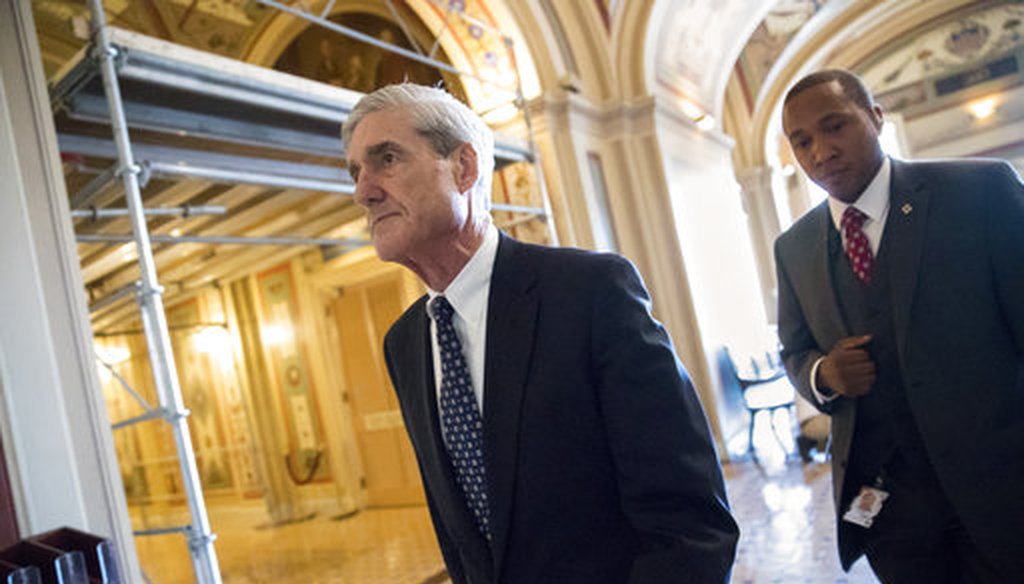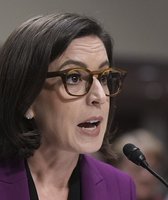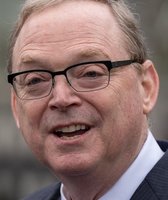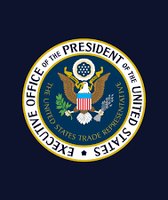Stand up for the facts!
Our only agenda is to publish the truth so you can be an informed participant in democracy.
We need your help.
I would like to contribute

Special counsel Robert Mueller departs after a closed-door meeting with members of the Senate Judiciary Committee on June 21, 2017. (AP/J. Scott Applewhite)
Americans of all political stripes are waiting to see what happens with the special counsel investigation headed by Robert Mueller. How might the midterm elections -- and the desire not to put a thumb on the political scales -- affect the timing of Mueller’s public moves?
Here are some of the questions and answers.
Does the Justice Department have guidelines for what to do when investigations bump up against elections?
Bottom line: The department urges that prosecutors avoid making political moves around an election. This has generally been interpreted as keeping quiet around election time, but the department does not set a specific time period.
The most on-point document is a 2012 memo written by then-Attorney General Eric Holder, which says in part:
"Simply put, politics must play no role in the decisions of federal investigators or prosecutors regarding any investigations or criminal charges. Law enforcement officers and prosecutors may never select the timing of investigative steps or criminal charges for the purpose of affecting any election, or for the purpose of giving an advantage or disadvantage to any candidate or political party. Such a purpose is inconsistent with the department's mission and with the Principles of Federal Prosecution."
Sign up for PolitiFact texts
In addition, the U.S. Attorney's Manual says, "Employees in the Department of Justice may not . . . use their official authority or influence to interfere with or affect the result of an election."
Overall, the existing guidance "leaves a lot of wiggle room," said Peter Zeidenberg, a white-collar attorney with the firm Arent Fox who previously worked for the Public Integrity Section of the Justice Department’s criminal division and the U.S. Attorney’s Office for the District of Columbia.
In fact, what the Holder memo advises in the case of close calls is to undergo further consultation, with the public integrity section of the criminal division for further guidance.
"Some say there is a 60-day dark period, where public filings should not occur, but that is not part of any written policy," said Barbara McQuade, a former U.S. Attorney for the Eastern District of Michigan. Still, she added, "Mueller may avoid activity on the eve of the election in an abundance of caution or to avoid the appearance of partisanship."
What sorts of activities would a prosecutor be expected to refrain from during a pre-election quiet period?
For Mueller’s team, that would likely mean temporarily curbing the announcement of official acts, such as indictments and plea deals. So far, the Mueller team hasn’t been making announcements beyond that, so refraining from public comments would simply be a continuation of Mueller’s current practice.
Investigative activities such as witness interviews and document searches could keep churning on during an election-related quiet period. "The investigation could continue until and after the election," said Carl Tobias, a University of Richmond law professor.
Does it matter that President Trump is not personally on the ballot this fall?
Experts agreed that Trump is so closely identified with his party in the 2018 midterms that he would likely get the same wide berth that a candidate on the ballot would if they were being investigated.
"Given the political environment, it’s inevitable that the products of the investigation will shape election discussion whether the president is on the ballot or not," said Justin Levitt, a Loyola Law School professor who previously served as deputy assistant attorney general for civil rights.
Are there precedents for public announcements close to an election?
Yes, neither of which is widely praised today.
In 1992, Lawrence Walsh, the independent counsel investigating the Iran-Contra scandal, announced the indictment of former Defense Secretary Caspar Weinberger for making false statements. The announcement was made on October 30, just days before the election in which then-President George H.W. Bush was seeking a second term. The Iran-Contra scandal occurred while Bush was serving as vice president, so reminding voters about a scandal on his watch so close to the election was a negative for Bush.
Walsh’s move was controversial -- especially so after a judge threw out the indictment not long after the election.
In 2016, then-FBI Director James Comey publicly announced that investigators were looking into a newly discovered cache of emails connected to Hillary Clinton, despite Comey having publicly announced months earlier that he’d decided not to prosecute Clinton, then the Democratic presidential nominee, for insufficient care in protecting classified emails. Comey’s second announcement came on Oct. 28, less than two weeks before Election Day.
This time, the outcry was even louder, and in a subsequent report, the Justice Department’s Inspector General frowned upon Comey’s decision-making about the announcement, calling it a "serious error of judgment." Some have opined that Comey’s announcement handed the election to Trump.
Far from offering a precedent for Mueller to make announcements near Election Day, experts say, the Walsh and Comey cases are examples of what not to do.
"I think that, more than ever, prosecutors realize the real and lasting damage that Comey caused and would not want to repeat it," said Zeidenberg.
Is there anyone else who might have a say in the timing of a Mueller report’s release?
Yes, Deputy Attorney General Rod Rosenstein would. He’s overseeing the Mueller investigation because Attorney General Jeff Sessions has recused himself.
"Under the special counsel regulations guiding his appointment, Mueller would submit his report to Rosenstein, not to Congress or the public," Nelson W. Cunningham, a former federal prosecutor, general counsel of the Senate Judiciary Committee and general counsel of the White House Office of Administration, wrote in Politico. "And under those regulations, his report will remain confidential unless Rosenstein decides to release it."
Given the intense public interest in the case, Rosenstein is expected to release something publicly, but he has leeway about the form and content. Even a fairly generous release of the investigation’s findings would require some additional time to make redactions for national security reasons. This added time further complicates any projection about when Mueller’s findings reach the public.
What do experts think about the timing of Mueller’s release of findings?
Experts said they would be surprised if Mueller released a report or made a major announcement less than a month before the election. If that day comes and goes, they say, he’d likely wait until after the election to make a public announcement.
"I would say 30 days before an election is about as close as Mueller would likely want to go" with a public announcement, Zeidenberg said.
Levitt agreed. "I think the closer it gets to an election, the less likely it is that Mueller issues a significant indictment or releases a significant summary to Congress before the election, rather than waiting until after," he said.
One thing will be harder for Mueller to avoid: Whether he ultimately makes a major announcement before the election or after it, one side or the other will criticize the timing he chooses.
Our Sources
Eric Holder, memo, March 9, 2012
Justice Department, U.S. Attorneys Manual, accessed July 26, 2018
Justice Department, "Federal Prosecution of Election Offenses, Eighth Edition," December 2017
28 CFR 600.7 -- Conduct and accountability (for the special counsel), accessed July 26, 2018
Time magazine, "Here's How the 2018 Midterm Elections Could Affect Robert Mueller's Investigation," May 7, 2018
National Review, "For Mueller, Timing Is Everything," May 29, 2018
FiveThirtyEight.com, "The Comey Letter Probably Cost Clinton The Election," May 3, 2017
New York Times, "Charge in Weinberger Case That Caused Furor Before Election Is Thrown Out," Dec. 12, 1992
Nelson W. Cunningham, "Bob Mueller’s White Hot Summer" (Politico column), May 29, 2018
Email interview with Daniel Hemel, University of Chicago law professor, July 25, 2018
Email interview with Carl Tobias, University of Richmond law professor, July 25, 2018
Email interview with Douglas W. Kmiec, Pepperdine University law professor, July 25, 2016
Email interview with Barbara McQuade, former U.S. Attorney for the Eastern District of Michigan, July 26, 2018
Email interview with Justin Levitt, Loyola Law School professor who previously served as deputy assistant attorney general for civil rights, July 25, 2018
Email interview with Peter Zeidenberg, white-collar attorney with the firm Arent Fox who previously worked for the Public Integrity Section of the Justice Department’s criminal division and the U.S. Attorney’s Office for the District of Columbia, July 26, 2018


































